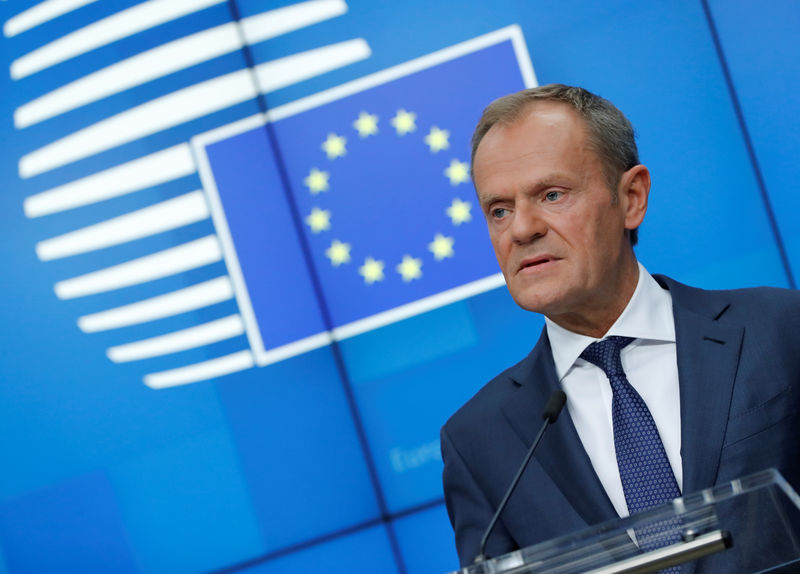Who is Kevin Hassett? Wolfe looks at the Trump ally tipped to become Fed Chair.
BRUSSELS (Reuters) - European Union leaders agreed on Thursday to impose sanctions to stiffen their response to cyber attacks and to rush through new curbs on online campaigning by political parties to protect next year's European polls from interference.
German Chancellor Angela Merkel became the latest leader this week to warn against the risk of disinformation and voter manipulation to undermine the May elections to the European legislature.
The threat of a special EU economic sanctions regime against computer hackers, including hostile governments and individuals, as well as fines for political parties, will act as a deterrent, European Council President Donald Tusk said after a summit of EU leaders.
"Such a regime should help to protect our citizens, companies and institutions from all kinds of cyber security threats," Tusk told reporters, referring to proposals pushed by seven EU countries including Britain.
Russia has made cyber and electronic warfare part of its military operations, Western officials say, and Britain, the Netherlands and the United States have accused Moscow of conducting a global campaign of computer hacks against the West.
But EU officials are equally concerned about the misuse of voter data by domestic actors to sway elections.
The EU executive proposed new rules last month to guard against a repeat of the Facebook (NASDAQ:FB) Cambridge Analytica scandal.
The data of millions of EU citizens were among those used by the British political consultancy to build profiles on voters and influence the U.S. presidential election in 2016.
In summit conclusions on Thursday, EU leaders said the new measures to tackle cybersecurity, disinformation and data manipulation "deserve rapid examination and operational follow-up".
In their meeting with Asian leaders at the EU-Asia summit from Thursday evening, the 28 EU leaders will meet Russian Prime Minister Dmitry Medvedev and China's Premier Li Keqiang. Cyber security is expected to be discussed, with a final statement focusing on action to combat hackers.
Russia and China deny responsibility for cyber attacks.
